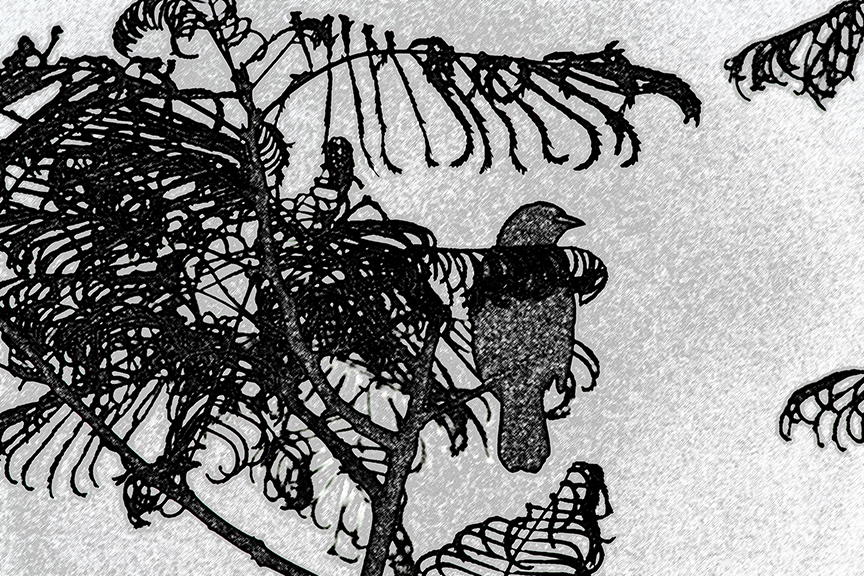
MORE
—War again
The F-16 cuts through air,
then more air, through clouds,
then more clouds, through whatever is
above clouds
above the round earth
with its prickles of cities,
its patchy fields and scratchy deserts
kept in by dented roads,
its pigs, wolverines,
& cats.
All that under it, &
more: perspective, view,
dreamy vision, memories of
front rooms, school rooms,
hospital rooms,
time striped, hatched,
notched on the face of it,
on the vast open face of it,
nothing subtracted, good
or ill. Nothing
taken away: not memories
of who one is supposed to hate
nor statues of who someone once
admired. Like when S said
emotions are only added,
added to themselves and to each
other, and that my reminder we needn’t
be lonely isn’t right, exactly.
The love is added in, she said:
added in like almonds or copper,
like copper to gold, injected
like insulin, inserted like
a grace note. She said,
the night bird will still call us to
wakefulness and we’ll be alone
before we’re together. Together,
I insisted. We are
alone and together,
and we’ll be wistful and satisfied,
and forgetful and reminded.
It’s the blessing in the red ridge
of a scar, she tells me.
The and of living more.









